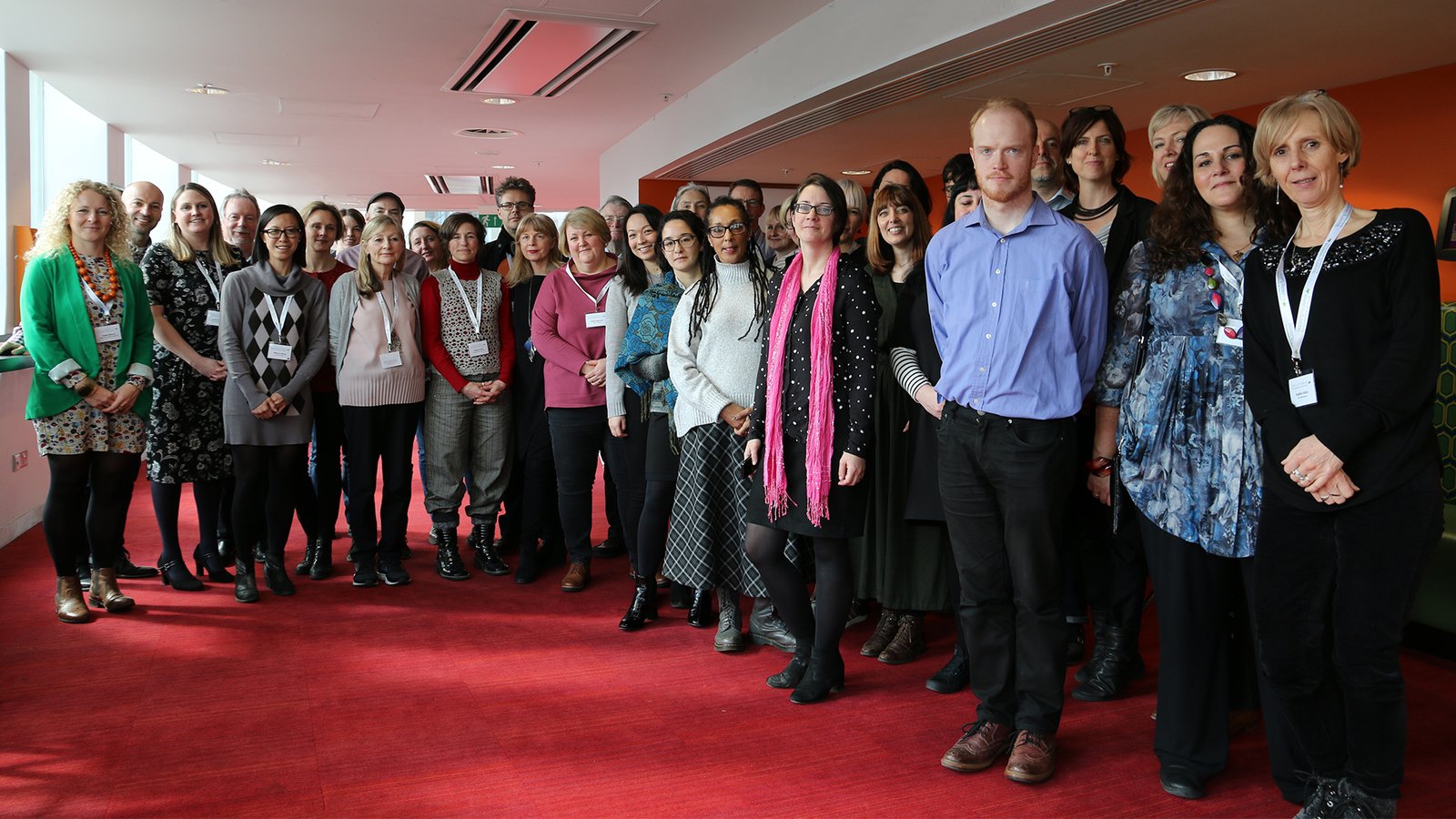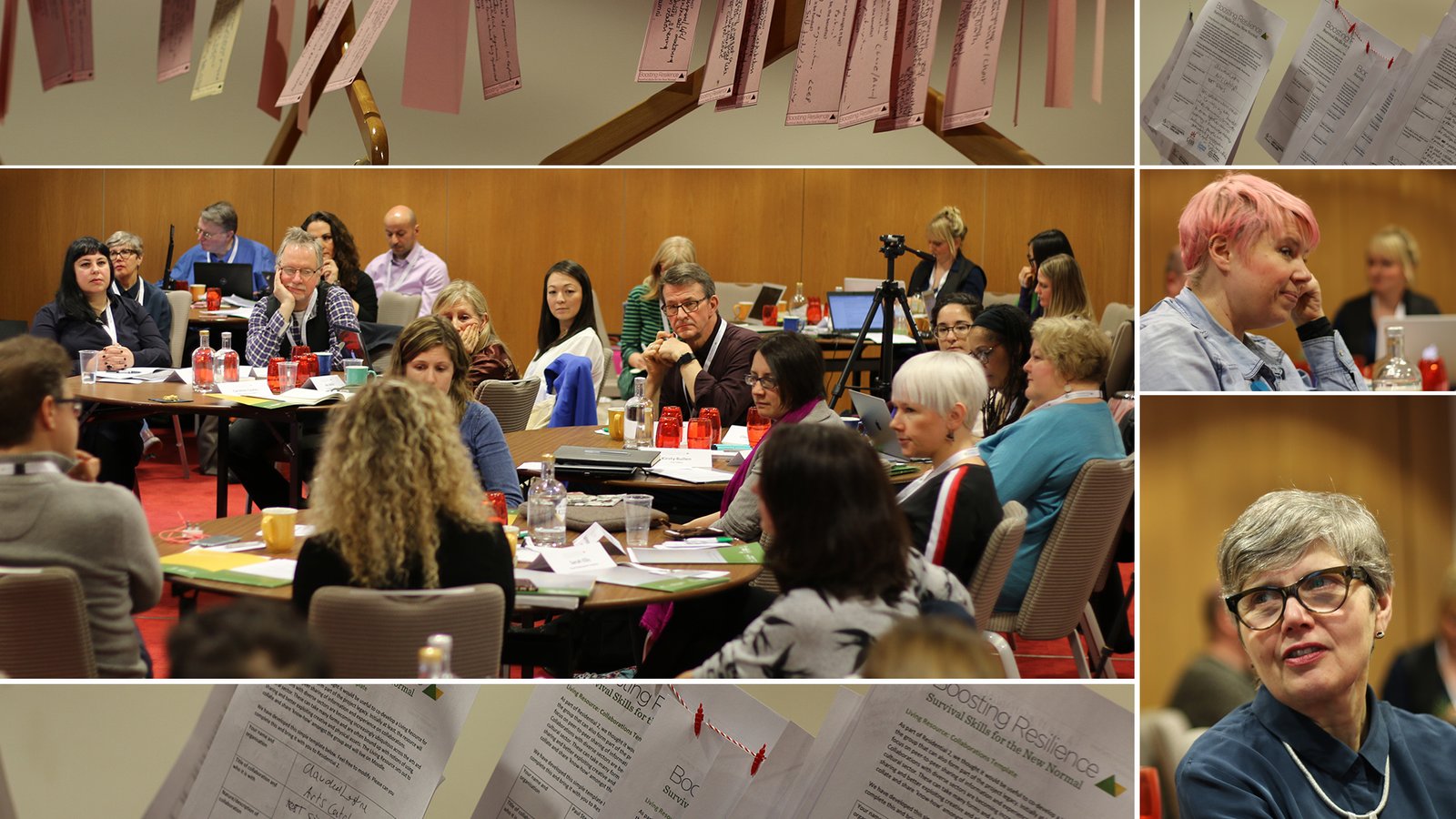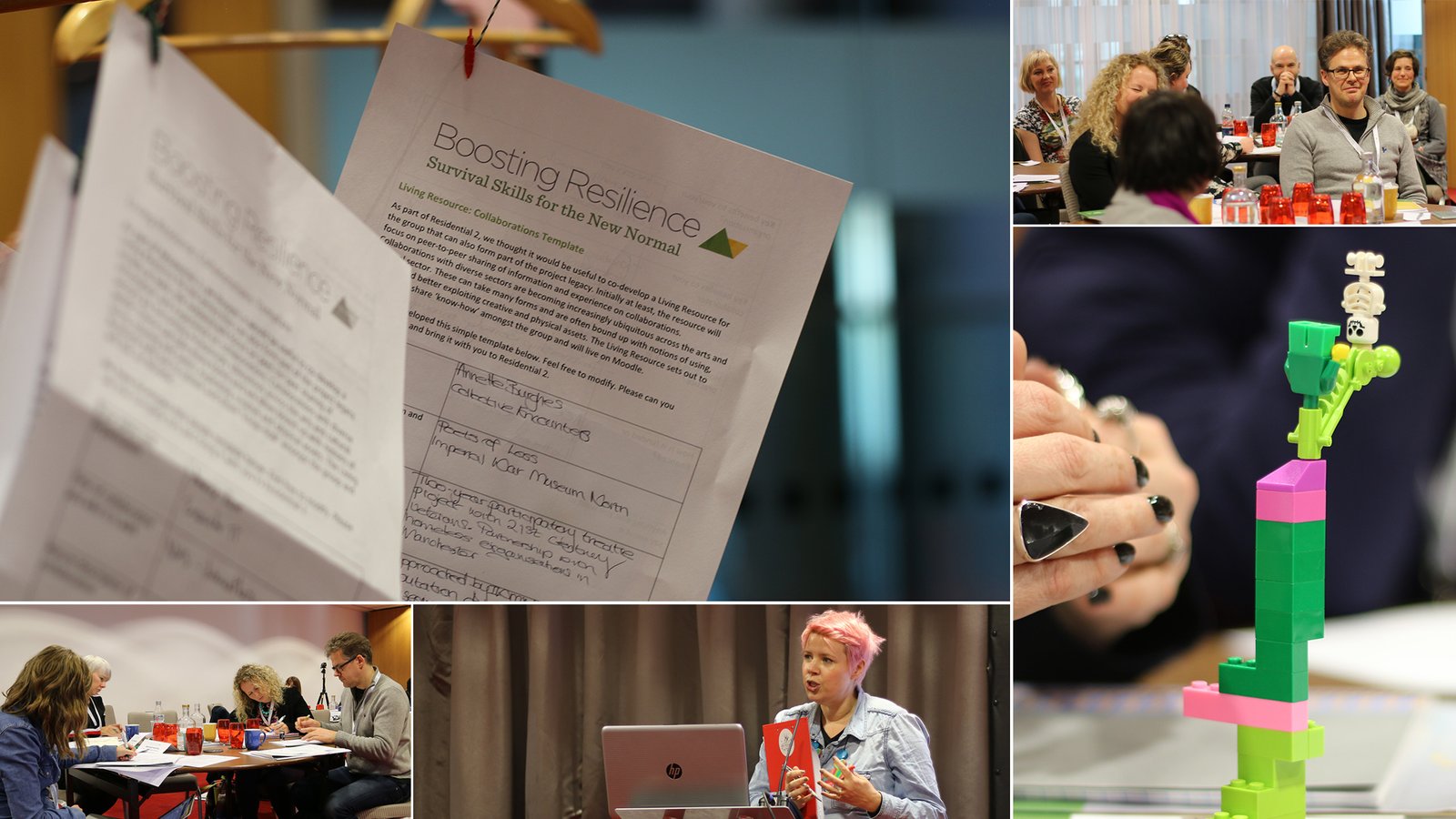Residential Two
Boosting Resilience Residential 2 was held over two days in March 2018 at Birmingham Rep, bringing our cohort together for the second time to delve deeper into the core rationale of our programme: How to make the most of your creative assets and intellectual property.
The residential, curated by TCCE, took the notion of Building Capacity for Resilience as its central theme and was designed to be responsive to the needs of the participants, a diverse group of individuals from across the country and from varying scales and types of organisations.
It was also constructed to reflect one of our key beliefs which is that by working together and in collaboration, organisations can often achieve greater resilience and resourcefulness than when working alone. Recognising the enormous expertise and knowledge within the group itself, we were keen to encourage as much peer-to-peer work and networking as possible within the second residential.

Day One
Day 1 started with a session on Embedding Resilience where we invited four of the cohort to present to the group on what they had been doing differently since the start of the programme and since the first residential back in September 2017.

As a group we had been very actively developing a whole range of initiatives and opportunities over the intervening six months. Action Learning sets were established for and with the cohort in Manchester and London as was a Participation Evaluation Group, to encourage involvement the in the overall evaluation process. Other initiatives such as intense two week Creative Journaling course, the establishment of a mentoring bank and online sessions on specific areas of IP meant that cohort had a significant range of potential resources to draw on. One respondent talked about how she was ‘getting to be comfortable with feeling uncomfortable’ whilst others spoke about taking specific learning processes such as using ‘Theory of Change’ back into their organisations at board level.
Our next session entitled Developing resilience through using creative assets in collaborative contexts brought guest presenters into the residential, Rosy Greenlees, Chief Executive, Crafts Council and Professor Maria Delgado, Director of Research, Royal Central School of Speech and Drama) to share their perspectives, insights and expertise with the group, with some quite hard-hitting messages such as the importance of being realistic rather than overly optimistic when setting targets and to recognise that listening is the crucial skill needed in developing strong collaborations. The group then went on to work in small peer to peer groups with the aim of starting to create a Resources Platform, which will eventually become a mini publication, to share experiences of current collaborations with sectors (e.g. HE, health, digital and others) and speculate on new possibilities for collaborations amongst the cohort itself.
Recognising that processing, space for reflection and indeed just some getting some time outside is such a vital component of any learning experience, we invited Ben Waddington, the Director of Birmingham’s Still Walking Festival to lead a walk, entitled ‘Getting Closer’, encouraging the group to engage in the act of looking and to explore their environs through the use of micro-lenses
Our final session for Day 1 was an Action Hack: Making the space for collaboration led by Isla Wilson, Director, Ruby Star Associates). Using Lego Serious Play and Value Canvas Modeling Isla encouraged the group to define a distinctive offer to a target customer group, and work out how to design and test hypotheses for growth. She introduced the basics of experiment design and piloting to help focus activity and prioritise ideas.
Day Two
Our second day started with Reflections on Resilience with guest presenter, Mark Robinson who actively encouraged participants to reflect on resilience thinking, what it might mean for them individually, their organisations and the culture sector more widely.

One very important thing that Mark pointed out was that staff investment in the arts tends to be neglected and that the effect of that is that our people assets are invariably weaker than they should be. He also spoke of the need to be able to both inspire change and to be open to being changed.
Mark was followed by a workshop on New business models: Panel discussion and group with guest Presenters: Nike Jonah, Director, Connecting Dots; Alice Millest, Director, Arts Ventures; Francis Runacres, Executive Director, Enterprise & Innovation, Arts Council England. Guests spoke about the need to support one’s own resilience and advocated doing three things a month to support that, such as applying for opportunities or going to conferences. They also talked about the fact that success runs out and that it’s important to recognise when to disrupt successful things.
A workshop on Getting to grips with IP: Case studies, from arts and culture and other sectors gave the cohort an overview of Trade Marks, Copyright, Patents, Confidential Information and Public Domain Rights.
As with our first residential, we concluded with a brief session on Reflection and Review encouraging the cohort to give us feedback and reflect on where they ‘were’ in terms of their own perspectives on being resilient. We were delighted when the following week the responses to our survey started to pop in and the vast majority of the cohorts, who all responded to the survey, told us that their experience and learning had been either very good or excellent. It’s a tough act to follow but as we move into the planning phase for our third and final residential, our key desire will be is to maintain that level of quality whilst encouraging an even greater degree of programme co-design.
Evelyn Wilson, Co-investigator, Boosting Resilience and Co-Director TCCE





